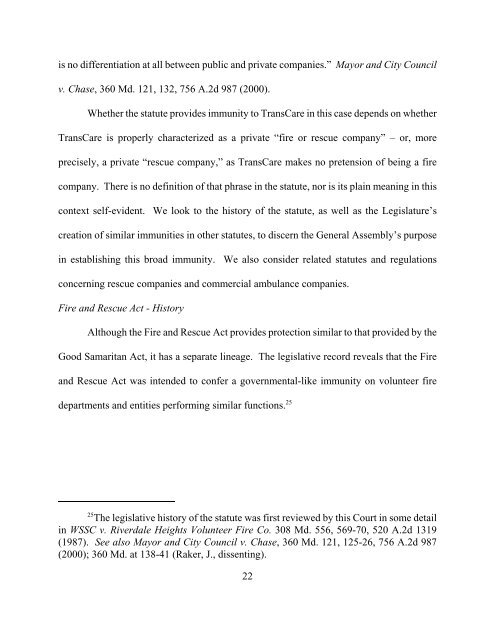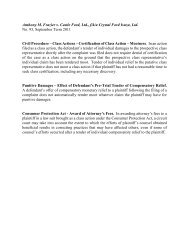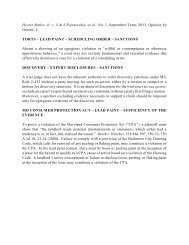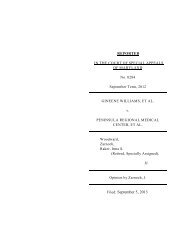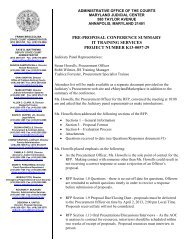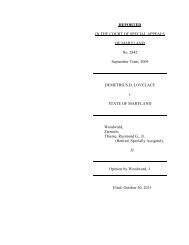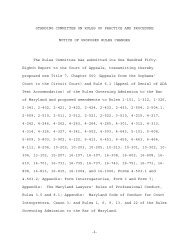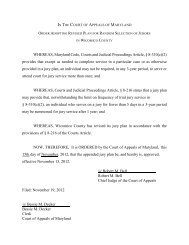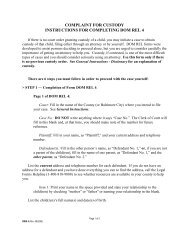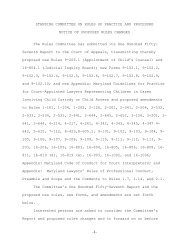24/12 - Maryland Courts
24/12 - Maryland Courts
24/12 - Maryland Courts
You also want an ePaper? Increase the reach of your titles
YUMPU automatically turns print PDFs into web optimized ePapers that Google loves.
is no differentiation at all between public and private companies.” Mayor and City Council<br />
v. Chase, 360 Md. <strong>12</strong>1, 132, 756 A.2d 987 (2000).<br />
Whether the statute provides immunity to TransCare in this case depends on whether<br />
TransCare is properly characterized as a private “fire or rescue company” – or, more<br />
precisely, a private “rescue company,” as TransCare makes no pretension of being a fire<br />
company. There is no definition of that phrase in the statute, nor is its plain meaning in this<br />
context self-evident. We look to the history of the statute, as well as the Legislature’s<br />
creation of similar immunities in other statutes, to discern the General Assembly’s purpose<br />
in establishing this broad immunity. We also consider related statutes and regulations<br />
concerning rescue companies and commercial ambulance companies.<br />
Fire and Rescue Act - History<br />
Although the Fire and Rescue Act provides protection similar to that provided by the<br />
Good Samaritan Act, it has a separate lineage. The legislative record reveals that the Fire<br />
and Rescue Act was intended to confer a governmental-like immunity on volunteer fire<br />
departments and entities performing similar functions. 25<br />
25 The legislative history of the statute was first reviewed by this Court in some detail<br />
in WSSC v. Riverdale Heights Volunteer Fire Co. 308 Md. 556, 569-70, 520 A.2d 1319<br />
(1987). See also Mayor and City Council v. Chase, 360 Md. <strong>12</strong>1, <strong>12</strong>5-26, 756 A.2d 987<br />
(2000); 360 Md. at 138-41 (Raker, J., dissenting).<br />
22


